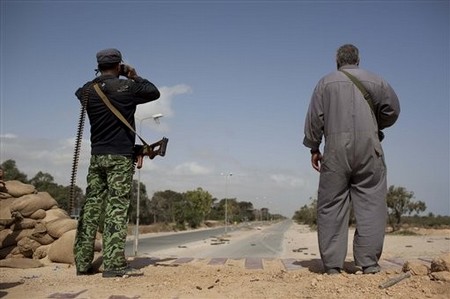Helicopters are deployed to Libya

The mission creep in Libya continues with the news that the French and British will deploy attack helicopters to protect civilians strike at hard-to-reach Gaddafi forces. David Axe analyzes the move:
The decision to deploy attack helicopters was a long time in coming, a clear sign NATO appreciates the major escalation that the move represents. As early as April, analysts were saying helicopters might be necessary to root out Qadhafiâ??s most determined defenders. The British Apaches began preparing for sea operations in early May. In the meantime, the Royal Navy tried less risky methods of hitting Qadhafiâ??s troops, including gunfire from the destroyer HMS Liverpool.As Britain and France up the ante in Libya, the U.S. continues to resist playing a larger role. U.S. Air Force A-10 attack planes and AC-130 gunships already represent the allianceâ??s most precise ground-attackers, short of helicopters. Plus, â??we continue to provide the majority of intelligence, surveillance and reconnaissance assets,â? Secretary of State Hillary Clinton pointed out.
But the Pentagon, notably, has not volunteered its own Apache and Cobra attack helicopters for ultra-dangerous Libya duty.
It does seem that NATO is dedicated to slowly ratcheting up the pressure on Gaddafi. But it does again beg the question of what NATO's plans are for a post-Gaddafi Libya, should they succeed in driving him from power. Unlike Iraq, there is now at least a semblance of a government in waiting in the Libyan Interim National Council - certainly more legitimate than the Chalabi-led Iraqi National Congress that the Pentagon flew into Iraq. And in this sense, the slow progress toward unseating Gaddafi has given the Council some time to dispense with the inevitable in-fighting and politicking that would naturally occur should they assume real power in Libya.
That said, the real test is not whether some alternative government can eventually assume power in Tripoli, but whether it could hold the country together against an insurgency from regime loyalists - if they choose to mount one. And if an insurgency does flare up, what role will NATO play in attempting to suppress it?
(AP Photo)



